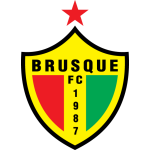Rodolfo Landim Primary Business
Flamengo owner Rodolfo Landim was primarily a businessman who was initiated into club administration due to his expertise in the financial department and the club's corresponding needs. During his time in the corporate world, he made his wealth and reputation through dealing in commodities of energy, logistics, and financial consulting, with his specialty lying in the high-risk capital enterprise management sector. His initial venture at Petrobras from the 1980s till the dawn of the 21st century saw him manage billion-dollar offshore clients, which subsequently led to his illumination in departments of engineering, finance and logistics. He also took part in various ventures of Eike Batista, i.e., as president of OGX, being a part of the EBX group, and also for MMX, a mining company. The completion of his skillset occurred by handling the financial services of the Brasil Plural group, where he consolidated his overall knowledge in an attempt to pursue a bigger role, which he found in CR Flamengo.
These ventures ensured significant profits for Landim, making him financially stable for taking up the role of President of Flamengo, which does not grant him any share of the profit due to its status as a non-profit member-owned association. He re-enriched the treasury of Flamengo by tapping into its huge potential as a commercial brand, applying his significant business acumen. The club under Rodolfo made long-term deals with brand giants like Adidas, BRB, Pixbet, etc. He also introduced a new refreshed line of club merchandise catered to the demands of the fans, which resulted in huge merchandise sales profits, endearing him to the club's fans and ultras alike.
The negotiation of better broadcasting rights in accordance with the popularity of the club helped them to increase their broadcasting revenue. He also vouched for the reclamation of Flamengo's BTS and training clips from Globo, redirecting the inquisitive fans to Flamengo TV, increasing the popularity and the brand value of Flamengo along with it.
Rodolfo is also the architect of the idea of the construction of a new stadium for Flamengo due to the non-singularity of ownership of the Maracana, which is predicted to significantly multiply the matchday revenue for Flamengo.
Flamengo Owner Net Worth
Rodolfo Landim and Flamengo are separate financial entities, conjoined only for structure and management. Flamengo remarkably has the highest valuation amongst all its neighboring clubs, with a valuation of $871m, which is still $100m more than the 2nd placed Palmeiras. The club has seen an estimated growth of 52% from the 2020 to the 2024 season, which is a testament to the efficiency of the club's president and supporting administration. In terms of the club´s assets without players, it ranks only 5th in Brazil, due to its lack of a stadium. Operating revenues reached US$ 219m in 2023, and player transfers totaled US$ 280m.
Total assets of US$ 286m and debts of only US$ 14m, which comes in stark contrast to the $7,813,979.22 debt for Flamengo in the combined season of 2011-2012. Flamengo has even become one of the topmost clubs in terms of brand valuation, with estimated earnings of $372m through the promotion of brand campaigns, showing an increase of 62% since the 2020 season. The current Flamengo owner net worth is $3.84m, which is quite modest considering his exceptional portfolio.





-1766001039341.webp)
-1765978734128.webp)
-1765873410245.webp)
-1765972661212.webp)











